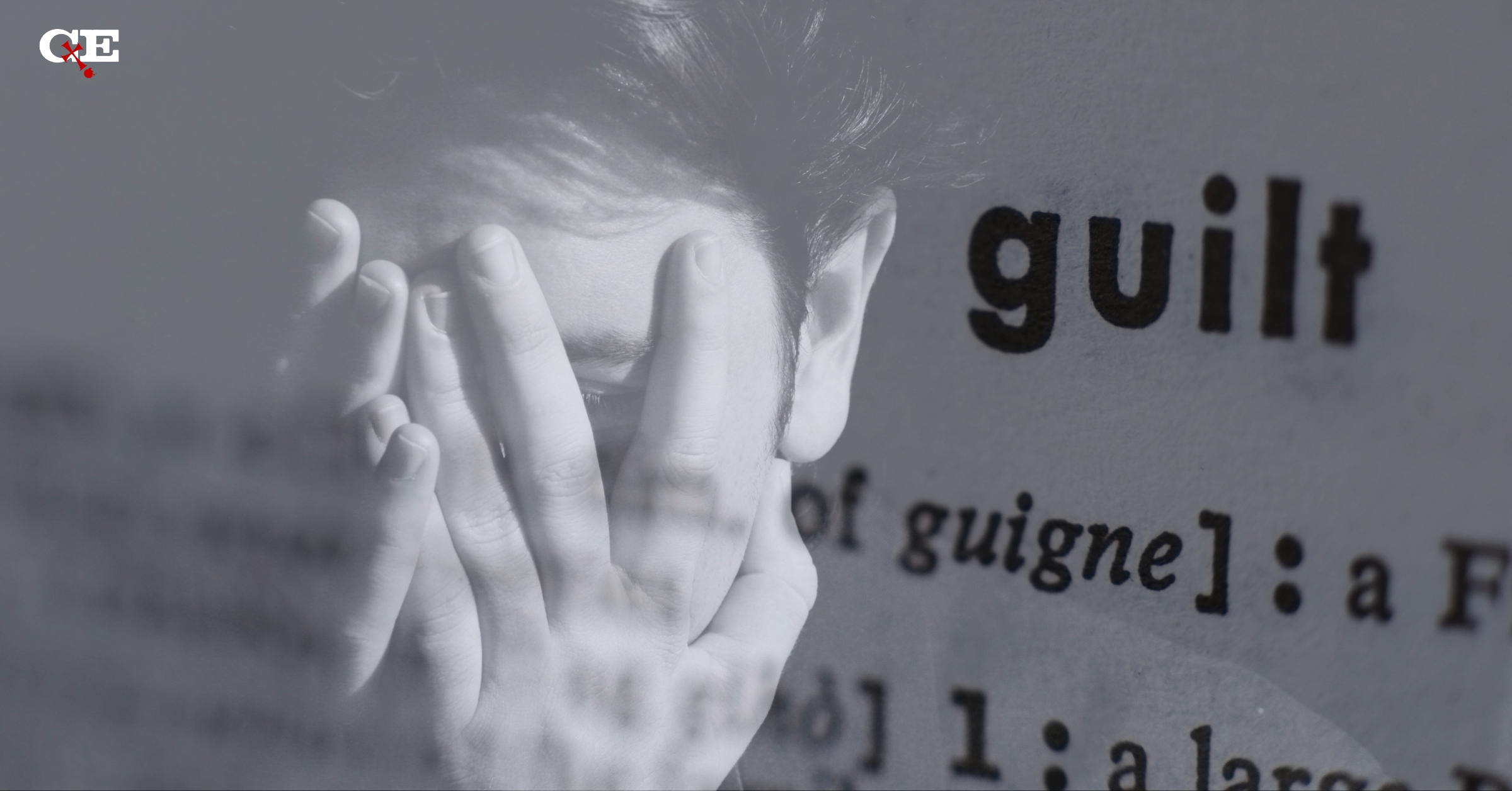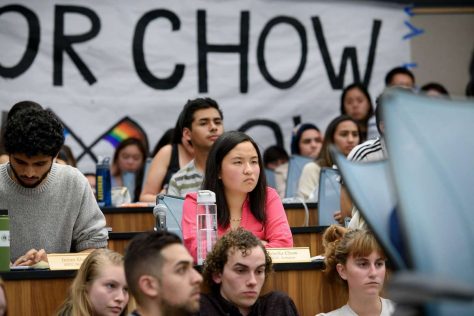As a prosecutor for many decades, I often found myself reflecting on the impact that feelings of guilt have, even upon criminals with lengthy records. Why was it that the guilty wanted to talk about their crime, even after being advised of their rights? Why would those who had “gotten away” nonetheless seek to escape their feelings through alcohol or drugs? Apart from true sociopaths, it seemed to me that people cannot simply cast-off feelings of guilt by force of will. The feelings persist and they demand a reckoning. That voice of conscience – that voice that so many of us try so hard to quiet– simply refuses to cooperate.
Where Guilt Comes From
Put simply, feelings of guilt arise when a person senses the disconnect between what they have done, or are planning to do, and what they realize they “ought” to do. But why should this be so? Why should we feel conflicted about the behavior we are consciously choosing? For example, when I am hungry, my instinct is to eat to satisfy the hunger. But when I eat too much, and do so repeatedly, I begin to realize I am becoming a glutton. Despite satisfying my urge, I realize that I should not act that way. Similarly, I may elect to act in a way that hurts someone else to advance my own interests. But later, I begin to feel qualms and regret my behavior.
Why is it Universal?
What worldview, I wondered, best explains this near-universal human experience?
To the secularist, such feelings are the product of long-term social evolution. Initially, this explanation made sense to me. After all, why wouldn’t the person with a “pro-social” approach add to their group’s potential for survival? And wouldn’t feelings of guilt for wrongdoing tend to produce pro-social behavior? But the more I thought about this, the more I realized that it lacked true explanatory value.
If we did in fact evolve from primitive protohumans, how did these first thinking humans begin to feel guilt? After all, no one ever enjoys feeling guilty, and such feelings definitely tend to constrain – not expand – behavior choices. They would cause a person to think twice before doing something that might be in their individual interest. Stealing from one’s neighbor, for example, or killing one’s rival to obtain his belongings, would benefit an individual assuming they felt they could accomplish it. Giving a stranger food or shelter, by contrast, would put someone at a disadvantage if resources are scarce. It makes much more sense that any potential benefit in group thinking would be outweighed by the limitations on guilt-inducing behaviors. Imagine the lion chasing its prey but then feeling “guilty” and stopping short of his goal. How long would he survive? Probably not long enough to pass his genes on to the next generation.
It’s hard to imagine how pro-social thinking would have arisen in the harsh and competitive environment of the first humans. If we are just evolved but now intelligent primates, why would we ever depart from pursuing our own, individual short-term best interest? Raiding and stealing from others makes a lot more sense than trying to make peace with someone who is bent on taking what you have. Why would we limit our possible choices by deciding that we “ought” to do something that helps others but only provides us a possible, longer-term benefit? And if we chose to do so, would this not be the result of an intelligent selection? Feelings of guilt would play no useful role here. Indeed, being burdened by guilt would detract from survivability and therefore be rooted out over time. Moreover, if pro-social thinking is an intellectual exercise, why would feelings come into play at all? Why not simply decide sometimes to act one way depending on the circumstances, without ever experiencing feelings about our choices? What possible advantage would such an approach confer?
What does Altruism Prove?
No, pro-social or altruistic thinking only makes sense in a person who already has in mind the view that building a stronger community, or helping others, is itself a good to pursue. An individual possessing this capacity would decide to forego killing his rival in search of something greater in the more remote future. He would realize this is something he “ought” to do even if his hunger or greed were impelling him to a different decision.
Why would we have such a capacity built into us? The secularist has no answer, but the Christian does. The capacity for guilt did not evolve. It was built into our minds in the same way acquisition of language and understanding the concept of “fair play” were, put there by an intelligent Creator who has a moral law that he desires us to obey. And so, when we stray from that law, there are feelings of dissonance and regret that emerge from that mental “subroutine” leading us back to the “good.” Morality, and the resulting feelings of guilt, are a message to us from outside, not an evolved internal trait.
Now it is true that we do not all experience guilt in the same way. Different cultures, and different groups within a single culture, may feel guilty about different things. But many common features are evident. No one feels guilt after doing good, or angst after following their conscience. No one feels pleased when they betray a friend. And of course, consciences can be seared by poor upbringing which distorts what “good” and “evil” are in the first place. Our minds naturally follow a selection process as to what we “ought” to do, even if what informs that process has been distorted.
Written On our Hearts
Secularists see guilt as something in need of fixing. They look to modern science – psychology or pharmacology or both – to help people finally rid themselves of this vestige of what they view as our primitive and superstitious past. But it is to no avail. Feelings of guilt flow from the moral law “written on our hearts,” guardrails meant to guide us on to the right path, and no matter how hard we try, we cannot escape them.
Recommended resources related to the topic:
Correct, NOT Politically Correct: How Same-Sex Marriage Hurts Everyone (Updated; downloadable pdf, PowerPoint) by Frank Turek
Legislating Morality: Is it Wise? Is it Legal? Is it Possible? by Frank Turek (Book, DVD, Mp3, Mp4, PowerPoint download, PowerPoint CD)
Stealing From God by Dr. Frank Turek (Book, 10-Part DVD Set, STUDENT Study Guide, TEACHER Study Guide)
Is Morality Absolute or Relative? by Frank Turek (Mp3/ Mp4)
__________________________________________________________________________________________________________________________
Al Serrato earned his law degree from the University of California at Berkeley in 1985. He began his career as an FBI special agent before becoming a prosecutor in California, where he worked for 33 years. An introduction to CS Lewis’ works sparked his interest in Apologetics, which he has pursued for the past three decades. He got his start writing Apologetics with J. Warner Wallace and Pleaseconvinceme.com.



